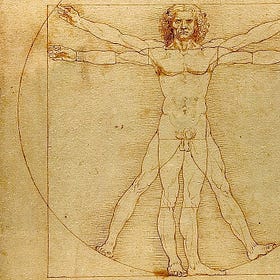Perfecting Our Potential
Becoming Human.
Whilst writing “Are YOU a Polymath”, I remembered a wonderful conversation with one of my Board Members in Hong Kong about the need for more “holistic people” in otherwise classically narrow careers.
The origin of the discussion was her pointing out that a lot of parents today are forced to sacrifice their careers for the sake of children instead of being able to bring the learnings from the experiences in the (private) family unit over to their careers for adapting and applying those lessons at a broader professional level as well.
We ended up agreeing that there is a lack of broad minded and widely experienced people being offered employment part time, which ends up being a loss for those who genuinely look at business as an opportunity for solving real world problems.
Creative problem solving skills are born out of understanding life to its fullest, not just a narrow part of it. — Toby Ruckert
Variety leads to Potential
When I compare my composing works with those of the old masters, it’s just incredible how some could channel their deep understanding of life at large and intrinsically express it through their main profession.
One that immediately springs to mind is Camille Saint-Saëns, who apart from being a composer, pianist/organist and writer on music, did many other different things:
Saint-Saëns1 was a multi-faceted intellectual. From an early age, he studied geology, archaeology, botany, and lepidoptery. He was an expert at mathematics, held discussions with Europe's finest scientists and wrote scholarly articles on acoustics, occult sciences, Roman theater decoration, and ancient instruments. He wrote a philosophical work, “Problèmes et mystères”, which spoke of science and art replacing religion; Saint-Saëns's pessimistic and atheistic ideas foreshadowed Existentialism. Other literary achievements included a volume of poetry and a successful farcical play. He was also a member of the Astronomical Society of France, gave lectures on mirages, had a telescope made to his own specifications, and even planned concerts to correspond to astronomical events such as solar eclipses.
Are YOU a Polymath?
“Who am I” — a question some ask all the time, a few once in a while and the rest of us at least once in their lives. I’m no different. Given my diverse professional backgrounds and various personal interests, I’m confronted with this identity challenge on a regular basis
Saint-Saëns’s immense variety of interests allowed him to acquire different subject matter expertise throughout his life resulting in a holistic perfectionism which can be heard and felt in some of his musical works where he was clearly ahead of his time and therefore remains till this day never fully appreciated and truly understood:
Unfulfillment as Fuel for “Perfecting”
In today’s hectic (yet often unfulfilled) life, merely striving for perfection is an unthankful task at best — often filled with remorse. Just check out the common quotes on the web about “perfection” by very famous and well respected folks2. Most seem to have given up on the ideal of achieving some perfection, at the cost of never knowing for sure, and without leveraging some of the “unfulfillment” we all have in our lives as fuel for perfecting it.
Perhaps it’s because almost everyone in politics, business, finance or economics these days automatically lives by the 80-20 rule. Entire workshops are dedicated to this “Pareto Principle”3 yet very few grasp the magnitude of adhering to its often misunderstood consequences. Perhaps 20% of efforts could ultimately account for 80% of the returns in wealth management at the end of a financial cycle, however a mere 0.2% mistake in the hands of a doctor quickly finalizes a life or death situation.
For doctors, artists, lawyers, scientists (and other professions for this matter) the strive for perfection isn’t optional. It’s at the core of their professional existence to try perfection realizing they’ll never achieve their best otherwise. Indeed, without bringing more of the “desire towards becoming perfect” into our daily lives, we may never reach the optimal outcome, let alone achieve our full potential.

Perfection is achieved, not when there is nothing more to add, but when there is nothing left to take away.” — Antoine de Saint-Exupery
Once a young and new employee I worked with on a design project mentioned to me:
“I think it’s ok (now). It looks better than before.”
My response was that I would measure his performance based on him trying to deliver nothing less but perfection which (quite rightfully) caused a big discussion within the team given his junior role. But to me — life is too short to aim for anything less IF someone is truly keen on discovering his potential.
Unfortunately very few people bother about perfection these days, simply because less often gets you more. But it does not make you the best you can be and ultimately the world now needs more people who (want and eventually will) realize their full potential.



